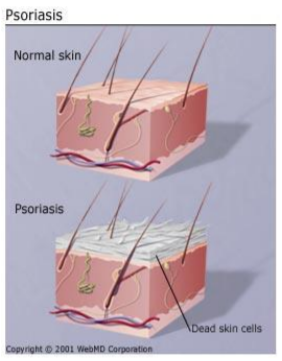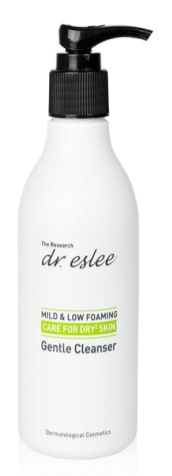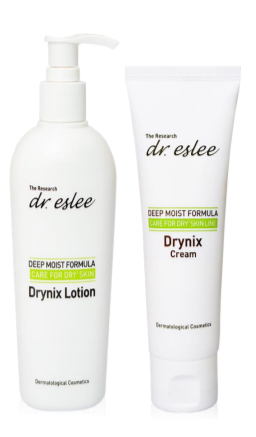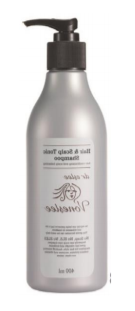About Skin
Eczema is a term for a group of medical conditions that cause the skin to become inflamed or irritated.
What Are the Symptoms of Eczema?
No matter which part of the skin is affected, eczema is almost always itchy. Sometimes the itching will start before the rash appears, but when it does, the rash most commonly appears on the face, back of the knees, wrists, hands, or feet. It may also affect other areas as well
Affected areas usually appear very dry, thickened, or scaly. In fair-skinned people, these areas may initially appear reddish and then turn brown. Among darker-skinned people, eczema can affect pigmentation, making the affected area lighter or darker.
How Is Eczema Treated?
The goal of treatment for eczema is to relieve and prevent itching, which can lead to infection. Since the disease makes skin dry and itchy, lotions and creams are recommended to keep the skin moist. These products are usually applied when the skin is damp, such as after bathing, to help the skin retain moisture. Cold compresses may also be used to relieve itching.
Other treatments may include medication of which professional advice is suggested
How Can Eczema Flare-ups Be Prevented?
Eczema outbreaks can sometimes be avoided or the severity lessened by following these simple tips.
Lifestyle
Bathing once or more a day is recommended, usually for five to ten minutes in warm water. Soaps should be avoided as they tend to strip the skin of natural oils and lead to excessive dryness.
Unpredictable and irritating, psoriasis is one of the most baffling and persistent of skin disorders. It's characterized by skin cells that multiply up to 10 times faster than normal. As underlying cells reach the skin's surface and die, their sheer volume causes raised, red plaques covered with white scales. Psoriasis typically occurs on the knees, elbows, and scalp, and it can also affect the torso, palms, and soles of the feet.
The symptoms of psoriasis vary depending on the type you have. Some common symptoms for plaque psoriasis -- the most common variety of the condition -- including

Researchers think something sets off your immune system. The exact reason is a mystery. But it's likely a combination of genetics and triggers.
Your Genes and Your Immune System
Little bits of your DNA, called genes, are instructions for your cells. They control things like your eye and hair color, if you can taste certain things, and other ways your body works. Some genes are only active at certain times.
When you have psoriasis, the genes that control your immune system signals get mixed up. Instead of protecting your body from invaders as it's designed to do, it promotes inflammation and turns skin cells on overdrive.
Many people think that what they eat affects their psoriasis, but no studies have shown a connection. Doctors can’t be sure there's no link between some foods and psoriasis. It's just that so far, there's no proof.
When you have psoriasis, it's important to follow the advice of your doctor. Still, you can do a lot on your own to help control and prevent flare-ups.
Use moisturizing lotions. Symptoms get worse when your skin is dry, so keep it moist with creams and lotions. Thick and oily ones, like petroleum jelly, are usually best. They're better at trapping moisture beneath the skin. To help remove scales, apply cream on top of them, then cover the area with plastic wrap or another waterproof material. Leave it on for a few hours, then remove.
Take care of your skin and scalp. Be careful with your skin. Never pick at patches or scales, as you may make your psoriasis worse. Use caution when trimming your nails. If you cut yourself, it might make symptoms flare. If you have psoriasis on your scalp, rub your topical treatments -- such as tar shampoos -- into your scalp. Regular bathing with soothing products, such as tar solutions, may bring relief, too.
Avoid dry (AIR CONDITIONING), cold weather. Climate can have a big effect on psoriasis. For many people, cold, dry weather makes symptoms worse. Hot weather usually makes it better, but not always.
Use a humidifier. It's important to keep your skin moist. Turn on the humidifier when it's dry. Avoid medications that cause flare-ups. Let your doctor know about all the medications you take, even over-the-counter ones. Ask if they could affect your psoriasis. Drugs that are known to make

LOW FOAMING CLEANSER FOR ATOPIC DERMATITIS, SUITABLE FOR NORMAL, SENSITIVE & DRY< SKIN TYPES
针对特应性皮炎的少泡沫洁面乳,适用于正常、敏感和干燥的皮肤类型。

MOISTURISING EMULSION FOR ATOPIC DERMATITIS, SUITABLE FOR NORMAL, SENSITIVE AND DRY SKIN TYPES TOO
针对特性皮炎的保湿乳液,适用于正常、敏感和干燥的皮肤类型。

ANTI-HAIR LOSS/IRRITATIION SHAMPOO